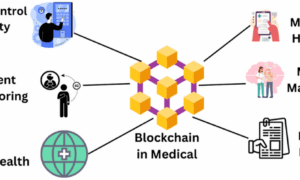Understanding the Challenges of Alzheimer’s Disease
Alzheimer’s disease doesn’t just impact the person diagnosed—it affects their entire support system. Cognitive decline, memory loss, and personality shifts can turn daily routines into overwhelming challenges. Families often find themselves struggling to balance care, emotions, and practical responsibilities.
Early intervention plays a crucial role in slowing disease progression. Specialized medical professionals use advanced diagnostic tools to detect early signs, allowing patients and families to plan accordingly. Access to expert guidance can make a significant difference in managing symptoms effectively.
Neurology Center of North Orange County provides essential care to those navigating neurological conditions. Comprehensive treatment plans and cutting-edge clinical research ensure that patients receive personalized support throughout their journey.
Personalized Treatment for Cognitive Disorders
No two cases of Alzheimer’s are the same, which is why a tailored approach to treatment is essential. Neurologists rely on medical history, genetic factors, and cognitive assessments to develop individualized care strategies. These customized plans aim to improve quality of life while slowing cognitive decline.
Incorporating medication management, lifestyle adjustments, and non-pharmacological interventions is key. Doctors may recommend cognitive therapy, structured routines, and nutritional modifications to help maintain mental function. Early-stage patients benefit from engaging in brain-stimulating activities, which help preserve memory and cognitive skills.
The Role of Family Support and Education
A diagnosis of Alzheimer’s doesn’t just affect one person—it reshapes entire family dynamics. Caregivers take on new roles, often juggling medical decisions, emotional support, and financial concerns.
Education plays a critical role in helping families cope with the complexities of the disease. Understanding symptom progression, effective communication techniques, and long-term care planning empowers loved ones. Specialists often provide workshops and one-on-one guidance to ensure families feel confident in their caregiving abilities.
Cutting-Edge Clinical Trials and Research
Medical research continues to advance, offering hope to those facing neurodegenerative conditions. Participation in clinical trials gives patients access to groundbreaking treatments before they become widely available.
Emerging therapies focus on slowing cognitive decline and improving daily functioning. Scientists are exploring new medications, lifestyle interventions, and even potential cures through ongoing studies. Staying informed about clinical research opportunities can open doors to innovative care solutions.
Managing Behavioral and Emotional Changes
One of the most challenging aspects of Alzheimer’s is the emotional toll it takes on patients and caregivers. Mood swings, agitation, and confusion can be distressing for both parties. Learning how to navigate these changes with patience and understanding is essential for maintaining well-being.
Behavioral therapies and structured routines can help manage emotional fluctuations. Establishing a calm environment, incorporating soothing activities, and using clear communication techniques reduce frustration. Seeking professional support ensures that both patients and caregivers receive the emotional guidance they need.
Planning for the Future
As Alzheimer’s progresses, long-term care decisions become necessary. Legal and financial planning should begin as early as possible to ensure a smooth transition. Understanding options such as in-home care, assisted living, and specialized memory care facilities is essential for making informed choices.
Care coordination services help families explore available resources and create a roadmap for the future. By preparing in advance, loved ones can ensure that patients receive the best possible care while maintaining dignity and comfort.
Finding the Right Support
Navigating an Alzheimer’s diagnosis is never easy, but with the right medical guidance and family support, patients can maintain a fulfilling quality of life. Access to expert care, educational resources, and clinical research opportunities empowers families to take proactive steps in managing the disease. While the journey may be challenging, the right approach ensures that patients receive compassionate and effective care every step of the way.

































